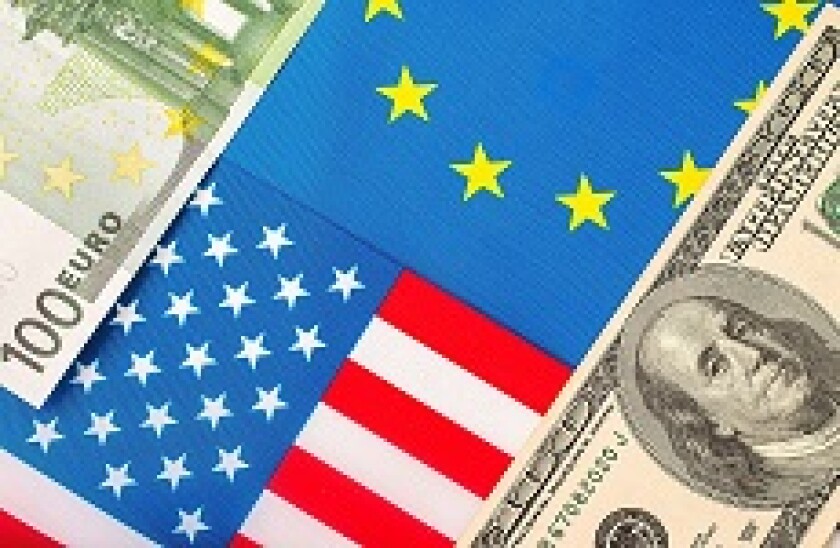“The question we get asked more and more is how to make the euro more global as the dollar is becoming a political instrument and the US is retrenching from global trade,” said Kalin Anev Janse, ESM secretary general, in an interview with Croatian magazine Lider last week. “There’s a growing demand for a stronger second currency, and that’s the euro.”
The dollar is certainly becoming a political instrument, but it’s hard to see how the euro is not.
What could make a currency more political than the threat of members leaving it — as Greece once had a strong chance of doing and Italy has a not insignificant chance of doing now — coupled with others using that threat as a tool to keep members in line?
After all, no matter how much their voters hate US president Donald Trump, the portmanteau New Yexit is unlikely to enter common parlance any time soon.
The biggest political difference between the euro and the dollar is that the dollar can be used as a political weapon internationally.
Were the euro to ever take even close to equal billing with the dollar, it’s highly likely the European Union would use it as a rod to beat unruly countries outside its usual sphere of influence.
That may not be a bad thing. But no one can say currencies are ever not at least in some way political. And the bigger they are, the more that holds true.







